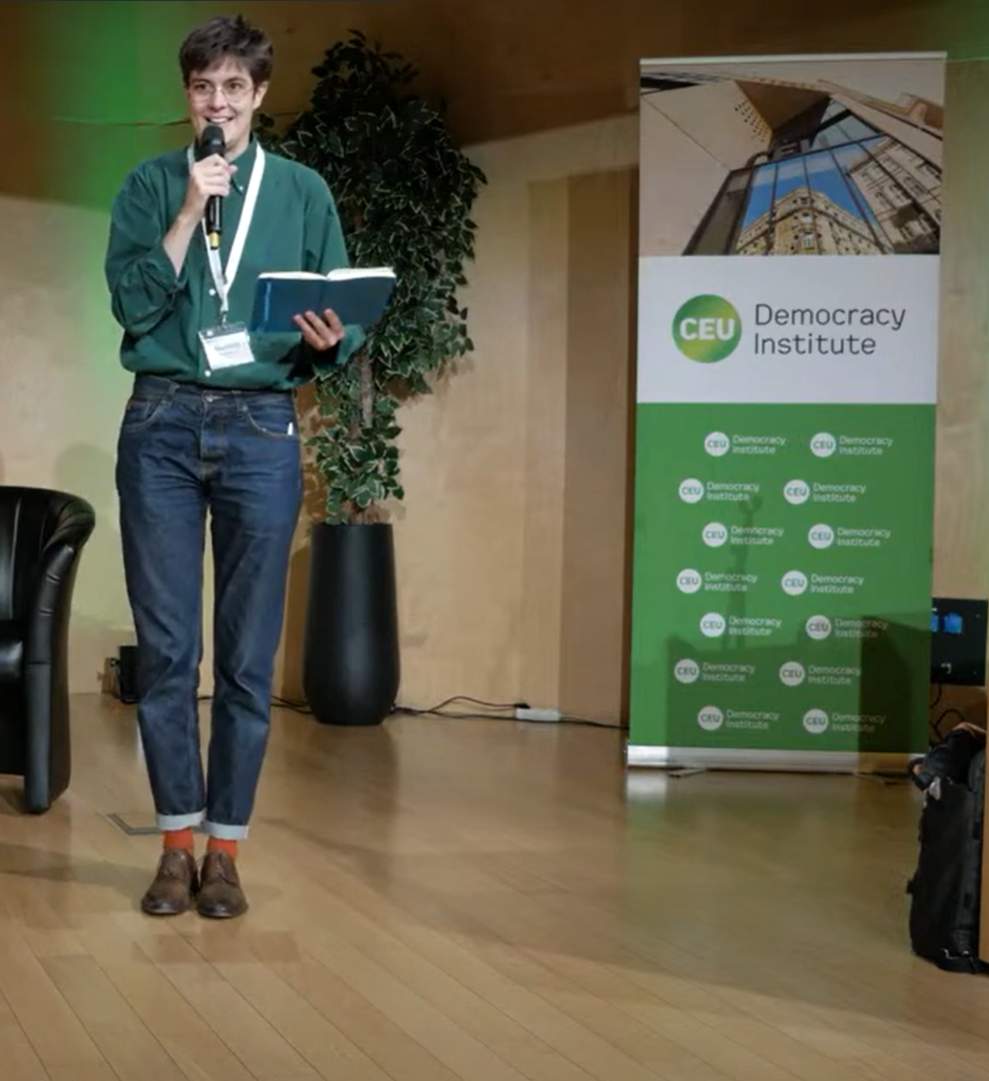Byline Times is an independent, reader-funded investigative newspaper, outside of the system of the established press, reporting on ‘what the papers don’t say’ – without fear or favour.
To support its work, subscribe to the monthly Byline Times print edition, packed with exclusive investigations, news, and analysis.
Help us build the better media Britain deserves.
A wealthy heir to a major German chemicals manufacturer has detailed just how heartless the super-rich can be in prioritising the pursuit of profits over all other considerations.
Marlene Engelhorn, who convened a citizens assembly in Austria to decide how to redistribute €25 million of her inheritance, told the Excessive Wealth Concentration and Democracy conference in Budapest on 23-24 June that “our comfort is always at the centre of what we are trying to protect and this has a direct effect on you because we will burn the planet to protect our comfort zone”.
She continued:
We will literally look sideways as people die in the very supply chains of our businesses that we are proud of. You must understand this
Marlene Engelhorn
The annual conference at the Central European University campus focussed on three central questions: how does excessive wealth harm democracy, can hyper-wealth produce public goods, and how can we contain excessive wealth?
The keynote address was given by Katharina Pistor, a law professor at Columbia University and author of The Code of Capital: How the Law and Wealth Create Inequality, on ‘Transforming the Law of Capitalism’. Engelhorn – whose inheritance will go to 77 NGOs and organisations over the next five years – concluded the conference with a talk titled, ‘Inside the Bubble: How the Hyper-Rich View the World’.

Englehorn told the conference that she was “furious” when she learned of her inheritance despite knowing, “I should be grateful and demure, and be like, ‘oh thank you’.”
She continued: “I was furious. I was angry. And I was angry because I knew it wasn’t justice. Nobody should be born and then just get money for it. That is a reflection of a feudal system that stands in stark contradiction to democracy. So, I should have never gotten this wealth to begin with, it shouldn’t have been mine.”
Englehorn went on to explain that the rich believe that they deserve their wealth, and therefore think, those who aren’t deserve it, before saying: “If you think some people are worth more and some are worth less, politically what this means is that you are more prone to believe in a feudal structure, or a fascist structure, than a democratic one, because democracy in essence believes that everyone is worth the same.”
Engelhorn told Byline Times that she participated in the conference, “because I see the ever-growing accumulation and concentration of wealth in the hands of the richest 1% as one of the biggest threats to our democracies, worldwide. And it’s important to analyse this properly in order to be able to create structures that will eventually correct inequality and all the crises it fuels.”
In her speech, Pistol spoke about the rise of the shadow-banking system which is being used to subvert regulations – drawn up after the 2008 financial crash – by firms, such as hedge funds or private equity funds. She explained that while these firms operate like banks, by not naming themselves as such, they can escape regulations designed to reign in bankers.
Pistor said: “It’s like we’re playing soccer, and we would usually assume that the soccer players have to abide by the rules of the game. But they’re actually actively changing the rules of the game as the game is in motion. And the [referee] basically is wobbling around and thinking about which rules they now have to enforce.”
Another speech at the conference was given by Peter Hagel, the author of Billionaires in World Politics, in which he argued that “the profound and principal danger of excessive wealth in democracy is what I call the ‘lure of the entrepreneur’.’
He said: “What is at the heart of the firm, and therefore of the entrepreneur is authoritarian leadership, this is what distinguishes the firm from the market and from democracy; hierarchical and authoritarian leadership.
“This was very well expressed by Musk and Ramaswamy when they started their DOGE project in the United States, they said ‘we are entrepreneurs not politicians’, and what was their definition of this? ‘We will focus on driving change through executive action’.”
ENJOYING THIS ARTICLE? HELP US TO PRODUCE MORE
Receive the monthly Byline Times newspaper and help to support fearless, independent journalism that breaks stories, shapes the agenda and holds power to account.
We’re not funded by a billionaire oligarch or an offshore hedge-fund. We rely on our readers to fund our journalism. If you like what we do, please subscribe.
This, Hagel argued, is the function of the billionaire in politics, “turning anti-politics into politics” and “replacing the institutions of liberal democracy with the rule of the omnipotent entrepreneur”.
Speakers and panelists at the conference appeared to arrive at the same conclusion after the conference: democracy is incompatible with the existence of excessive wealth.
While the tone was often gloomy, discussing the ruin that the ultra-wealthy are bringing to democracy, plenty of the panelists began to reach towards solutions such as wealth taxes and modernising the public sector so that authoritarian rule no longer seems like an attractive proposition in contrast to sclerotic government.
